Cloud POS for E-commerce: Bridging Online and Offline Sales Channels
Cloud POS for E-commerce
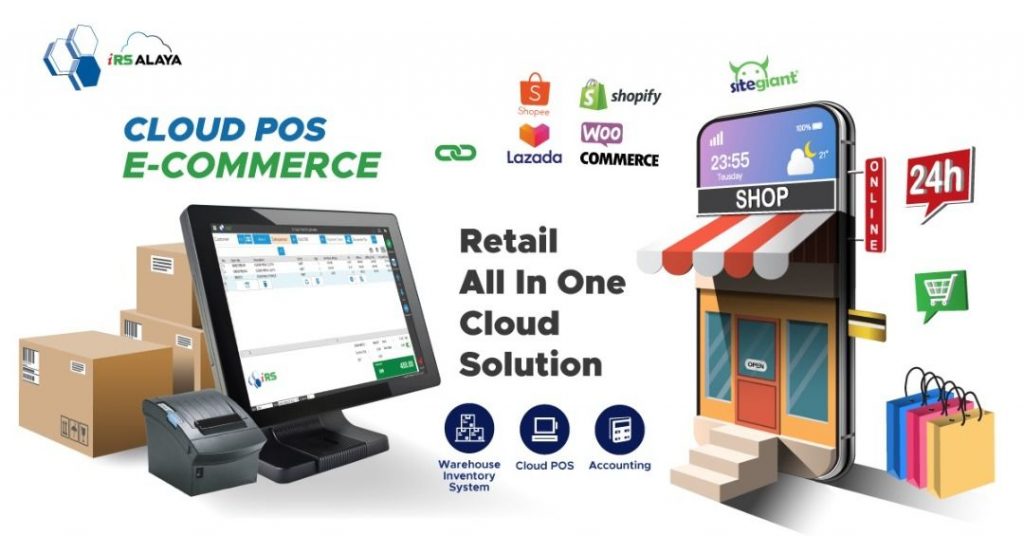
The distinction between online and physical sales channels is fading in today’s digital world. Whether they are browsing items on a website or going to a real store, customers increasingly demand a smooth shopping experience.
Businesses now need to combine their sales channels in order to deliver a consistent and well-rounded consumer experience as a result of the convergence of online and physical retail.
POS (point of sale) systems in the cloud. By bridging the gap between online and offline sales channels, these cutting-edge technologies enable businesses to optimize their processes and offer a consistent purchasing experience.
Cloud POS systems take advantage of cloud computing’s capabilities to offer real-time data exchange, inventory control, and transaction processing across a variety of channels.
Cloud POS platforms serve as a central node, tying together online shops, physical locations, and even mobile sales platforms. Businesses may remove boundaries between their online and physical channels by deploying a Cloud POS system, giving their consumers a smooth purchasing experience.
The difficulties that organizations experience maintaining different online and offline sales channels will be examined in the parts that follow, and we’ll also look at how Cloud POS solutions might help close this gap.
We’ll look at the advantages of combining these channels and how cloud POS solutions help companies provide a reliable and positive client experience. So let’s get started and learn how Cloud POS is transforming e-commerce by fusing the online and physical sales channels together.
Understanding the Challenges of Online and Offline Sales Channels
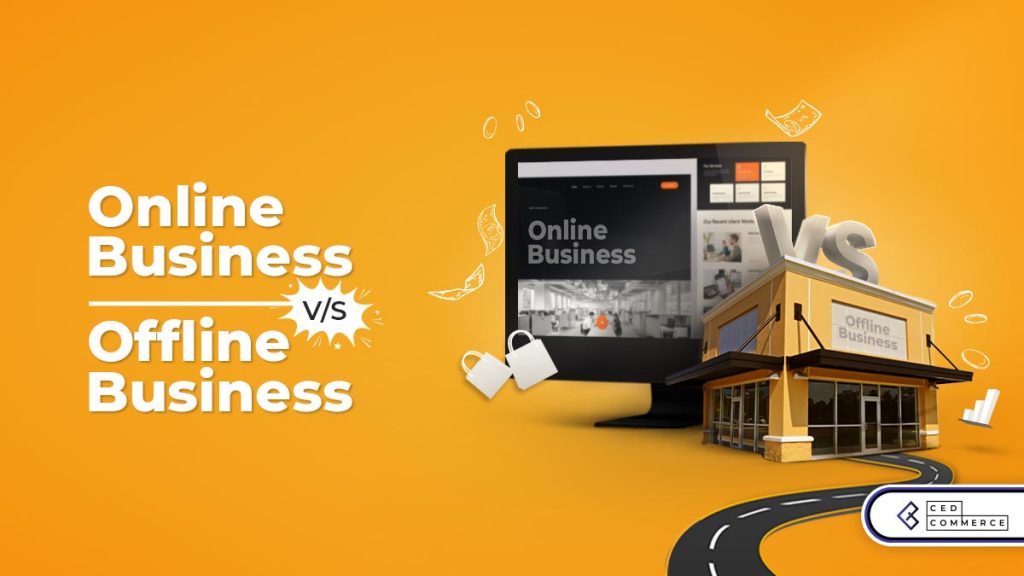
Overview of the benefits and limitations of online and offline sales
Both online and offline sales platforms have distinct benefits and drawbacks. Online sales provide organizations a worldwide reach, lower operating expenses, and the capacity to gather useful client data. On the other side, physical stores offer a tactile shopping experience, rapid product availability, and personalized encounters.
Discussion of the challenges faced when managing separate channels
But running distinct online and offline sales channels may be extremely difficult for companies. When stock needs to be synchronized across several channels, inventory management becomes complicated. Customers might get confused and lose trust if price, promotions, and product information are inconsistent. Separate channels can lead to fragmented consumer data, making it challenging to fully comprehend customer behavior’s and preferences.
Importance of providing a seamless customer experience across channels
Businesses must deliver a smooth and consistent consumer experience across online and physical channels if they want to succeed in the cutthroat market of today. Regardless of where they interact with a business, customers want consistent branding, pricing, and promotions. They want to be able to study items online and buy them offline, or the other way around. Customers’ irritation, lost purchases, and even reputational damage can result from not living up to these expectations.
Cloud POS solutions are useful in this situation. Businesses may get over these issues and offer a really seamless consumer experience by merging online and physical sales channels. We’ll look at how Cloud POS systems help companies connect their online and physical sales channels to give customers a seamless and enjoyable purchasing experience in the next section.
What is Cloud POS?
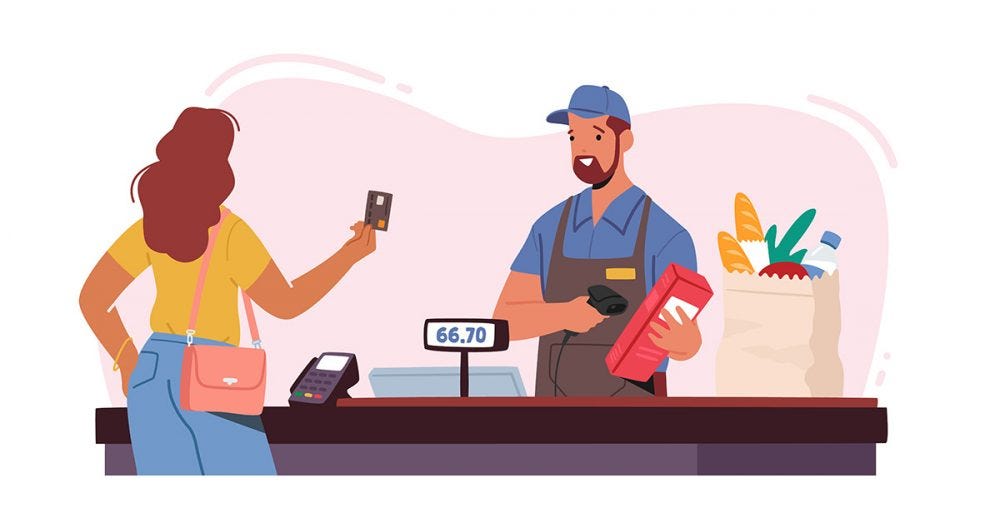
Definition and explanation of Cloud POS systems
A software system called cloud POS, commonly referred to as cloud-based point of sale, uses cloud computing technologies to handle and execute sales transactions. Cloud POS runs on distant servers that are accessed online, as opposed to traditional POS systems that depend on on-premises hardware and software. This implies that companies may use any internet-connected device to access and administer their POS system.
With no need for local servers and a lower risk of data loss, cloud POS systems securely save data online. These systems often have an intuitive user interface and may be tailored to match the unique requirements of various enterprises and sectors.
Key features and advantages of Cloud POS for businesses
Cloud POS systems offer a range of features and benefits that can significantly enhance a business’s operations:
- Mobility and Accessibility: Cloud POS can be accessed from any internet-enabled device, providing businesses with the flexibility to manage sales and inventory from anywhere.
- Real-time Data and Analytics: Cloud POS systems provide real-time insights into sales, inventory levels, and customer behavior, empowering businesses to make data-driven decisions and optimize their operations.
- Scalability: Cloud POS can easily scale with the growth of a business. Whether opening new stores or expanding online operations, businesses can seamlessly add new locations and users to the system.
- Integration Capabilities: Cloud POS systems often integrate with other business tools such as e-commerce platforms, accounting software, and customer relationship management (CRM) systems, allowing for streamlined operations and data synchronization.
- Automatic Updates and Maintenance: Cloud POS systems are typically updated and maintained by the provider, ensuring businesses have access to the latest features, bug fixes, and security patches without the need for manual updates.
How Cloud POS enables integration of online and offline sales channels
The ability of Cloud POS to integrate physical and online sales channels is one of its main benefits. Cloud POS platforms work as a central hub for managing inventory, processing transactions, and syncing data amongst various channels.
Businesses may do the following by combining their online and physical sales channels with a cloud POS system:
- Unified Inventory Management: Businesses can manage inventory levels in real-time using cloud POS, assuring accurate stock information across all channels. This avoids stockouts, overselling, and inconsistencies between online and real inventories.
- Consistent Product Information and price: By updating product information, price, and promotions in a single spot using Cloud POS, businesses can make sure that their data is accurate and up to date across all sales channels.
- Providing a smooth shopping experience for customers is made possible by cloud POS systems. Customers may, for instance, place online orders and pick them up in-store, send back items they purchased online to physical locations, or access their purchase history and loyalty points across channels.
Businesses may remove boundaries between online and physical sales channels by utilizing the capabilities of Cloud POS systems, giving consumers a seamless and comfortable experience. The advantages of integrating various channels and their effects on the customer experience are discussed in the section that follows.
Bridging the Gap: Integrating Online and Offline Sales Channels
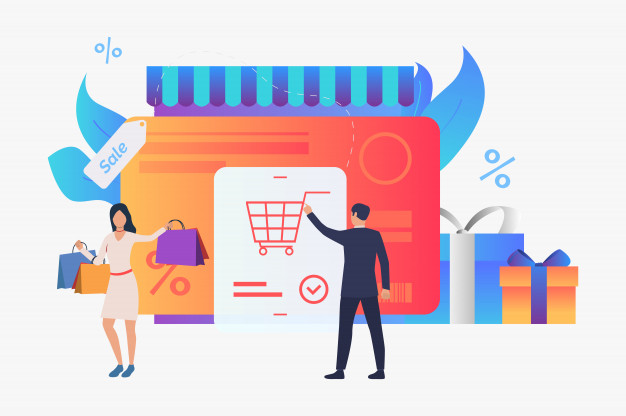
Overview of the benefits of integrating sales channels
Integrating online and offline sales channels offers numerous benefits for businesses:
- Improved Customer Experience: Integrating sales channels enables businesses to provide a seamless and consistent shopping experience. Customers can research products online and make purchases in-store, or vice versa, without encountering discrepancies in pricing, promotions, or inventory.
- Expanded Reach: By integrating channels, businesses can extend their reach to a wider customer base. Online shoppers may discover a brand’s physical store locations, while in-store customers can explore additional products and services available online.
- Enhanced Inventory Management: Integration through Cloud POS systems allows for centralized inventory management. This enables businesses to optimize stock levels, prevent overselling or stockouts, and fulfill orders efficiently across all channels.
- Increased Sales Opportunities: Integrating sales channels opens up new sales opportunities. For example, customers browsing online can be prompted to visit a physical store through incentives or personalized offers, and vice versa.
How Cloud POS facilitates the integration process
Cloud POS systems play a vital role in facilitating the integration of online and offline sales channels. Here’s how they accomplish this:
- Centralized Data Management: Cloud POS acts as a centralized hub where businesses can manage product information, pricing, promotions, and customer data. Changes made in one channel reflect across all channels, ensuring consistency and accuracy.
- Real-time Data Syncing: Cloud POS systems enable real-time syncing of sales data, inventory levels, and customer information. This ensures that businesses have up-to-date information across channels, allowing for accurate order fulfillment and personalized customer interactions.
- Omnichannel Order Management: Cloud POS enables businesses to process orders seamlessly, regardless of the channel. Customers can make purchases online for home delivery, in-store pickup, or even make returns at a physical location.
- Analytics and Insights: Cloud POS systems provide advanced analytics and reporting capabilities. Businesses can gain insights into customer behavior, sales trends, and inventory performance across all channels, enabling data-driven decision-making and targeted marketing strategies.
Examples and case studies showcasing successful integration
Several businesses have successfully integrated their online and offline sales channels using Cloud POS systems. For example:
- Retail Clothing Brand: By implementing a Cloud POS system, a clothing brand unified their inventory across online and physical stores. This allowed customers to check product availability online and try on items in-store, leading to increased sales and improved customer satisfaction.
- Restaurant Chain: A restaurant chain integrated their online ordering platform with their Cloud POS system. This enabled seamless order processing, kitchen ticket printing, and real-time inventory updates, ensuring efficient operations and accurate order fulfillment.
- Electronics Retailer: An electronics retailer integrated their online store with their physical locations through a Cloud POS system. Customers could browse products online, check in-store availability, and reserve items for pickup. This integration led to increased foot traffic and a boost in online sales.
These illustrations show how Cloud POS solutions help companies connect their online and physical channels, creating a seamless consumer experience and enhancing operational effectiveness. We will go into detail about the importance of delivering a seamless customer experience across channels and how it affects customer satisfaction and loyalty in the next section.
Seamless Customer Experience

Importance of delivering a consistent customer experience
Delivering a consistent customer experience across online and offline sales channels is essential for company success in today’s fiercely competitive market. Customers anticipate a smooth transition between channels, and any discrepancies may cause annoyance and lost business. Here are several factors that make a constant client experience crucial:
- Customer Satisfaction: Consistency builds trust and fosters customer satisfaction. When customers have a positive and consistent experience, they are more likely to return and become loyal advocates for the brand.
- Brand Reputation: Inconsistencies across channels can harm a brand’s reputation. Negative experiences or disparities in pricing, promotions, or product information can erode customer trust and loyalty.
- Competitive Advantage: Delivering a seamless customer experience sets a business apart from competitors. Customers are more likely to choose a brand that offers a convenient and consistent shopping journey across various channels.
How Cloud POS enables unified inventory management
Cloud POS systems play a crucial role in enabling businesses to achieve unified inventory management. Here’s how it works:
- Real-Time Inventory Tracking: Cloud POS systems provide real-time visibility into inventory levels across all channels. Businesses can efficiently track stock availability, prevent overselling, and fulfill orders accurately.
- Centralized Inventory Management: Cloud POS acts as a central hub for inventory management. Businesses can update product information, pricing, and stock levels in one location, ensuring consistency across all sales channels.
- Inventory Synchronization: Changes made to inventory, such as sales or stock adjustments, are instantly reflected across all channels. This synchronization eliminates discrepancies and ensures that customers have access to accurate and up-to-date product availability information.
Personalization and customer data integration with Cloud POS
Businesses may combine consumer data with cloud POS systems to offer tailored experiences across online and physical channels. Here is how Cloud POS makes this interaction possible:
- Unified Customer Profiles: Cloud POS systems store customer data in one centralized location, allowing businesses to build comprehensive customer profiles. This includes purchase history, preferences, and other relevant information.
- Omni-Channel Personalization: By integrating customer data with Cloud POS, businesses can personalize interactions and offers across all sales channels. Customers receive targeted recommendations and promotions based on their preferences, driving engagement and loyalty.
- Streamlined Loyalty Programs: Cloud POS systems enable businesses to implement and manage loyalty programs seamlessly. Customers can earn and redeem rewards across channels, enhancing their overall shopping experience.
Businesses may provide a unified and customized consumer experience by utilizing Cloud POS solutions. Cloud POS gives companies the tools they need to increase customer loyalty and happiness, from reliable inventory control to individualized interactions. We’ll look at how Cloud POS improves operational effectiveness and gives organizations useful data insights in the section after this.
Operational Efficiency and Data Insights

Through centralized management, cloud POS solutions give businesses the chance to simplify their processes. Here’s how it boosts effectiveness:
- Single Point of Control: With Cloud POS, businesses can manage multiple sales channels, inventory, and transactions from a single point of control. This eliminates the need for separate systems and reduces manual efforts, saving time and resources.
- Efficient Order Processing: Cloud POS systems enable businesses to process orders seamlessly across channels. Whether it’s an online order, an in-store purchase, or a customer request for pickup or delivery, the centralized system optimizes order processing, minimizing errors and delays.
- Automated Workflows: Cloud POS systems automate various workflows, such as order fulfillment, inventory updates, and reporting. This automation reduces the chances of human error and ensures consistent and efficient processes.
Real-time analytics and reporting across channels
Businesses may get real-time analytics and reporting across all sales channels thanks to cloud POS solutions. Here’s how it assists in gaining insightful information:
- Sales Performance Analysis: Cloud POS systems offer detailed sales reports and analytics, providing businesses with insights into their sales performance across channels. This includes metrics such as revenue, units sold, average order value, and more.
- Inventory Optimization: By analyzing real-time inventory data from Cloud POS, businesses can optimize their stock levels. They can identify top-selling products, slow-moving items, and make data-driven decisions to optimize inventory procurement and avoid overstocking or stockouts.
- Customer Behavior Insights: Cloud POS systems allow businesses to track and analyze customer behavior across channels. Businesses can gain insights into customer preferences, shopping patterns, and purchasing habits, enabling personalized marketing strategies and targeted promotions.
Using data insights to drive business decisions and strategies
It is possible to leverage the data insights offered by cloud POS systems to guide strategic business choices. Here is how companies may make use of these insights:
- Inventory Planning and Forecasting: By analyzing sales and inventory data, businesses can accurately forecast demand and plan their inventory accordingly. This helps optimize stocking levels, reduce excess inventory costs, and ensure product availability.
- Marketing and Promotions: Data insights from Cloud POS systems enable businesses to develop targeted marketing campaigns and promotions. By understanding customer preferences and purchase patterns, businesses can tailor their offers to drive engagement and increase sales.
- Operational Improvements: The data insights obtained from Cloud POS systems can highlight operational inefficiencies or areas of improvement. Businesses can identify bottlenecks, streamline processes, and implement changes to enhance overall operational efficiency.
With real-time analytics and data-driven insights, cloud POS systems provide organizations the opportunity to make wise decisions, streamline operations, and spur development. The difficulties and factors that organizations may need to take into account while integrating Cloud POS for e-commerce are covered in the following section.
Overcoming Challenges and Considerations
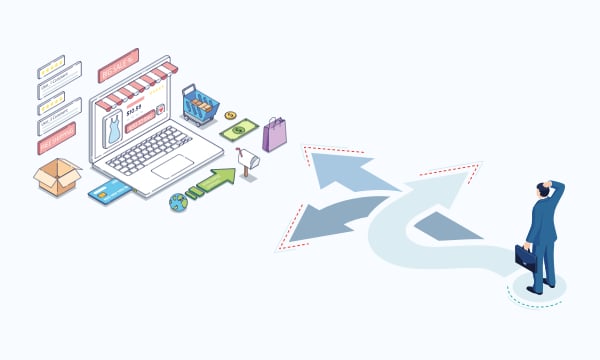
Addressing technical and logistical challenges in integration
Technical and logistical issues might arise when integrating Cloud POS for e-commerce. Here are some crucial ideas for overcoming these difficulties:
- System Compatibility: Ensure that the Cloud POS system is compatible with existing software, platforms, and hardware used in the business. Integration may require adjustments or upgrades to ensure smooth compatibility.
- Data Migration: Migrating existing data to the Cloud POS system can be a complex task. Plan and execute data migration carefully to avoid data loss or inaccuracies during the transition.
- Integration with Existing Processes: Determine how the Cloud POS system will integrate with existing processes, such as order management, inventory control, and accounting. Consider customization options or additional integrations required to align the system with the business’s unique needs.
Ensuring data security and privacy
When using Cloud POS for e-commerce, data security and privacy are crucial. To protect sensitive information, take into account the following actions:
- Data Encryption: Ensure that data transmission and storage within the Cloud POS system are encrypted to protect customer and business data from unauthorized access.
- Secure Access Controls: Implement strong access controls, including unique user accounts and password policies, to prevent unauthorized access to the Cloud POS system.
- Regular Security Audits: Conduct periodic security audits to identify vulnerabilities and address any potential risks. Stay up to date with security patches and updates provided by the Cloud POS system provider.
Training and adoption of Cloud POS systems by staff
Cloud POS system adoption depends on staff employees receiving the right training and assistance. Think about the following actions:
- Comprehensive Training: Provide thorough training to employees on how to use the Cloud POS system effectively. Cover key functionalities, workflows, and any changes to existing processes.
- Ongoing Support: Offer ongoing support to address questions, troubleshoot issues, and provide guidance as employees become familiar with the Cloud POS system. This support can be in the form of documentation, online resources, or dedicated support channels.
- Change Management: Implement change management strategies to help employees transition to the new system smoothly. Communicate the benefits of the Cloud POS system, address any concerns, and encourage staff involvement and feedback throughout the integration process.
Businesses may overcome potential obstacles and guarantee a successful integration of Cloud POS for e-commerce by taking these issues and concerns into account. The main points will be summed up and the future of cloud POS and connected sales channels will be covered in the last segment.
Best Practices for Implementing Cloud POS for E-commerce
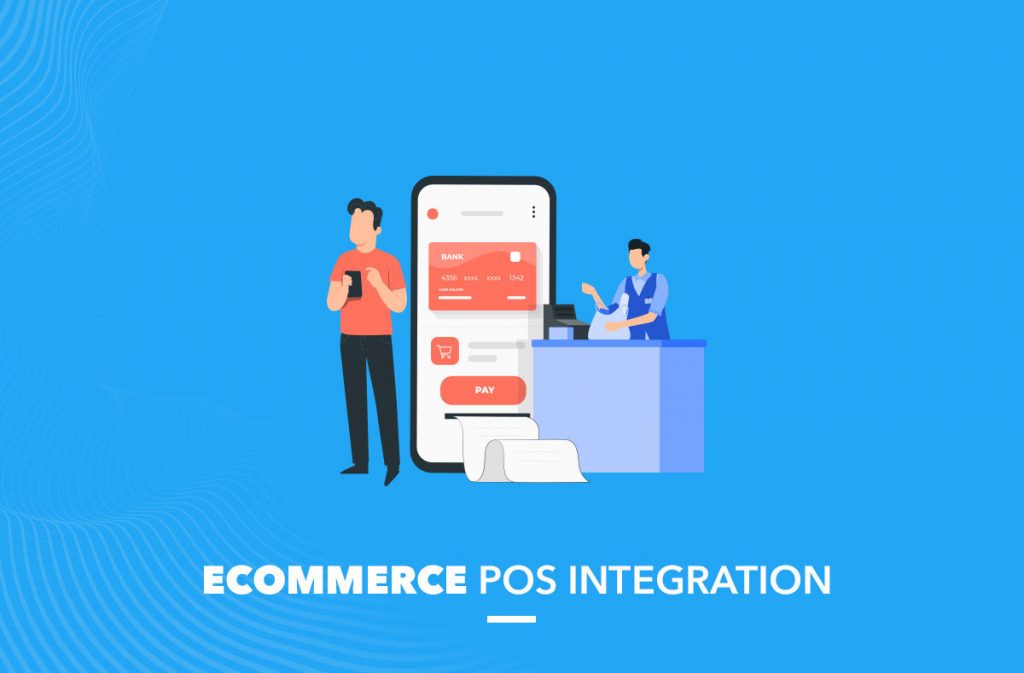
Tips for successful integration and implementation
Careful planning and execution are required when using Cloud POS for e-commerce. For a successful integration, take into account the following advice:
- Define Objectives: Clearly outline the objectives and goals you aim to achieve through the integration of Cloud POS. This will help guide decision-making and ensure alignment with your business’s specific needs.
- Engage Stakeholders: Involve key stakeholders, such as IT personnel, store managers, and employees, in the decision-making and implementation process. Their input and feedback will contribute to a smoother transition.
- Phased Approach: Consider implementing Cloud POS in phases rather than all at once. This allows for testing, training, and identifying any potential issues or challenges early on, minimizing disruptions to operations.
Key considerations for choosing the right Cloud POS system
The success of your e-commerce connection depends on your choice of Cloud POS system. Keep in mind the following factors:
- Scalability and Flexibility: Ensure that the Cloud POS system can scale with your business as it grows. It should be adaptable to evolving needs, such as adding new sales channels, locations, or features.
- Integration Capabilities: Assess the system’s integration capabilities with other essential business tools, such as e-commerce platforms, inventory management systems, and accounting software. Seamless integration ensures smooth data flow across different platforms.
- User-Friendliness: The Cloud POS system should have a user-friendly interface and be easy to navigate for both employees and customers. A steep learning curve could hinder adoption and lead to inefficiencies.
Importance of ongoing maintenance and updates
Once you’ve installed a Cloud POS system, it’s crucial to give regular maintenance and upgrades top priority. Think about the following:
- Vendor Support and Updates: Choose a Cloud POS provider that offers regular updates, bug fixes, and security patches. Stay informed about new features and enhancements that can improve the system’s performance and address emerging needs.
- Data Backup and Security: Regularly back up your data to protect against potential data loss or system failures. Ensure that the Cloud POS system provider has robust security measures in place to safeguard sensitive information.
- Staff Training and Refreshers: Offer continuous training and refresher sessions for employees to maximize their proficiency and ensure they stay up to date with system features and best practices.
Businesses may successfully use Cloud POS for e-commerce, maximize its advantages, and maintain a high degree of system performance and security by adhering to these best practice’s.
We will summaries the main ideas from this blog post in the last part and go over the future possibilities of linked sales channels and cloud POS technology.
Conclusion
Recap of the benefits of Cloud POS for bridging online and offline sales channels
There are several advantages to using a Cloud POS system for e-commerce, including bridging the gap between online and offline sales channels. Let’s review a few of their major advantages:
- Seamless Customer Experience: Cloud POS enables businesses to deliver a consistent and cohesive shopping journey for customers, regardless of the channel they choose to engage with.
- Unified Inventory Management: With Cloud POS, businesses can achieve centralized inventory management, preventing stock discrepancies, overselling, and stockouts.
- Personalization and Data Integration: Cloud POS allows businesses to integrate customer data, providing opportunities for personalized interactions, targeted marketing, and loyalty programs across channels.
- Operational Efficiency: Cloud POS streamlines operations through centralized management, automated workflows, and real-time analytics, optimizing efficiency and productivity.
Encouragement for businesses to embrace Cloud POS to enhance their omnichannel strategy
Businesses must use Cloud POS in the highly competitive environment of today if they want to improve their omnichannel strategy and satisfy customer expectations. Businesses can create a seamless shopping experience that promotes customer pleasure, loyalty, and revenue development by combining online and physical sales channels using Cloud POS.
By removing the boundaries across channels, cloud POS enables organisations to maintain uniform pricing, promotions, and inventory data. It permits data-driven decision-making, simplified processes, and personalised encounters. Adopting cloud POS is more than simply a trend—it’s a calculated decision to maintain competitiveness in the rapidly changing retail environment.
Final thoughts on the future of integrated sales channels and Cloud POS
Integrated sales channels and cloud POS systems have a bright future. Businesses must adapt and offer a seamless, omnichannel experience as customer behavior’s and preferences change over time. Businesses will be able to accomplish this thanks in large part to cloud POS systems.
We may anticipate more developments in Cloud POS technology, such as improved integrations, real-time data synchronization, and insights enabled by artificial intelligence. Businesses will be well-positioned to succeed in the digital age, acquire a competitive edge, and promote sustainable growth if they adopt Cloud POS and fully use its possibilities.
In conclusion, businesses that want to provide a seamless customer experience, optimise operations, and thrive in a digital-first environment must integrate online and physical sales channels using Cloud POS. Accept cloud POS as a game-changing instrument and unleash the potential of connected sales channels for the growth of your company.
BACK TO BLOG PAGE
